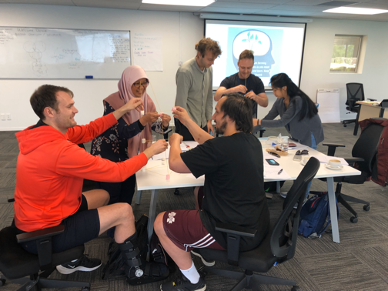Team Building (The science of working together)

OUTCOMES
Enhanced levels of teamwork skills will benefit the team as a whole because it:
- fosters creativity and learning, blends complementary strengths, & builds trust
- lessens, mitigates, and redirects conflict productively,
- promotes a wider sense of ownership, and
- increases the extent the workplace is ‘psychologically-safe’ and reduces the risks of not being so.
High-Performing teams tend to exhibit more of the following characteristics more often:
- clear and consistently-understood purpose, appropriate informality, & proactive participation,
- active listening,
- earned trust & civilised disagreement, consensus decisions, & open communication,
- clear roles especially when tasks intersect with other teams,
- shared leadership,
- external relations managed deliberately, diverse responsibilities, and self-assessment.
You’ll see a variety of learning strategies: cooperative / collaborative, constructive, experiential, Socratic, accelerated learning. Participants will experience rotation of paired / small group work, the creation or completion of partial existing content to adapt it to their own situations, the tactical use of purposeful questions to guide people to self-discovery rather than just telling, intermittent problem-solving team-based challenges, a welcoming learning environment that gets the learners and their brains ready to learn.
As part of addressing ever-diverse groups, as well as being generally wise principles of learning, I also draw on principles from the field of Maori education:
- Ako (Learners also learn when they teach others)
- Poutama (Like a ladder, learning needs to climb on previous learning)
- Te Whare Tapa Wha (The learner’s needs need to be met across multiple dimensions: physical, mental, emotional, social)
- Tuakana Teina (‘buddy system’)
People are different and some topics lend themselves to being best delivered by particular styles. Therefore, what you get is variety, and a professional, experienced facilitator able to take examples and scenarios from the real-world of the participants and workshop them together in real-time, as opposed to didactic linear delivery of generic content. These methods ensure a productive, effective, and efficient balance between the delivery of academic content, and a practical and relevant session that is engaging, memorable, and interactive.
 Call me
Call me Email Me
Email Me
